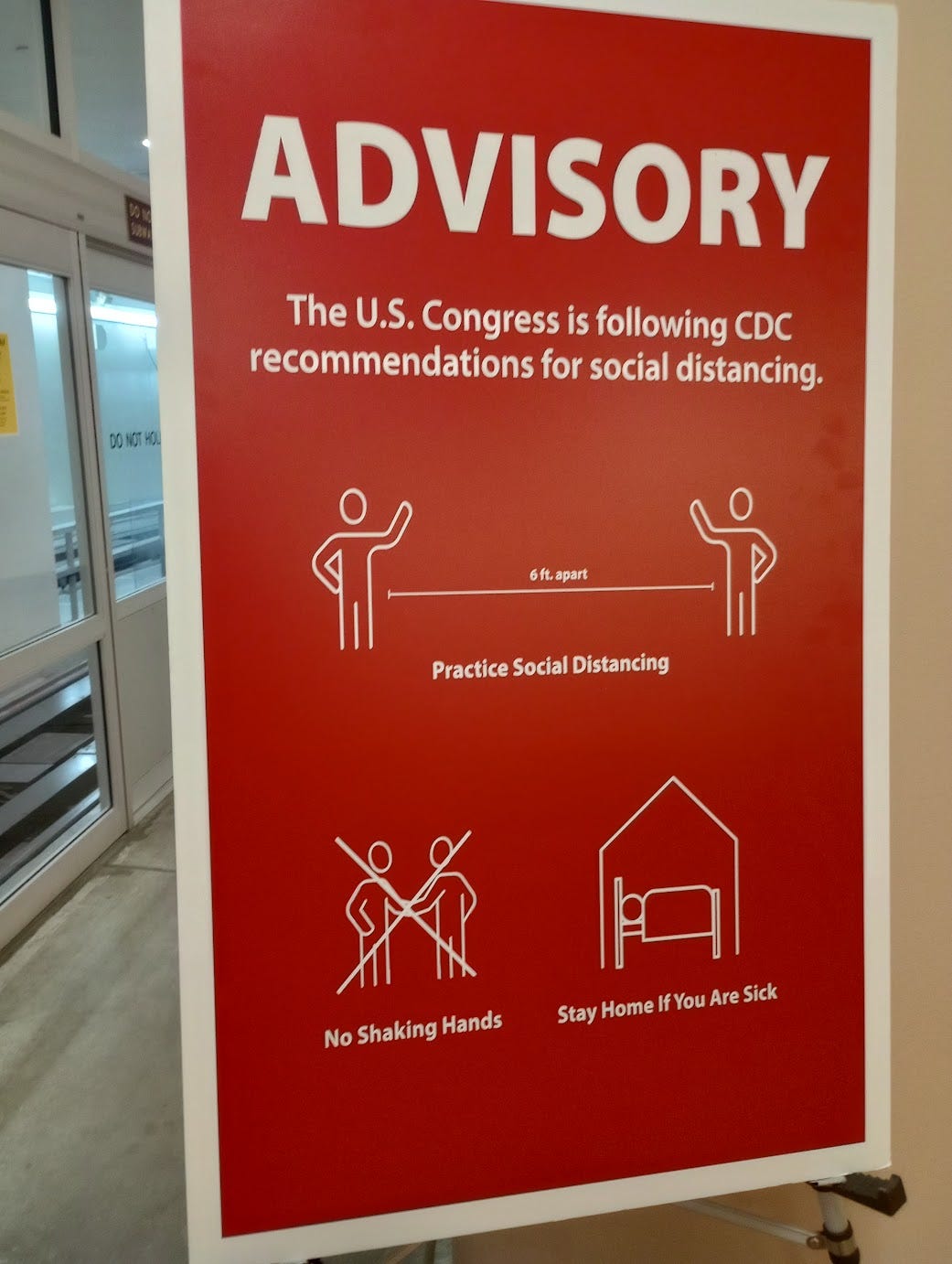Russia’s Blockade of Ukraine’s Ports Is Causing a Humanitarian Disaster
Plus, What Kellyanne Conway Loves
Recently at The Bulwark:
CHARLIE SYKES: The GOP’s Other Big Lie
You can support The Bulwark by subscribing to Bulwark+ or just by sharing this newsletter with someone you think would value it.
SHAY KHATIRI: Russia’s Blockade of Ukraine’s Ports Is Causing a Humanitarian Disaster.
There are several ways that Russia’s naval blockade can be broken—but they all involve an active role for the U.S. Navy, which would escort Ukrainian merchant ships reflagged to sail under American colors. NATO and American naval forces would also need to agree on a plan to work together to clear Ukrainian ports of mines.
Breaking the blockade could lead to further Russian escalation, so the Biden administration would need to accept risks to pursue this course. These risks are somewhat mitigated by the United States’s effectiveness in surveilling Russian leaders and by Putin’s cautious approach to prosecuting the war following his chastening by failure in its early days. The Russian president does not have a navy capable of winning a fight against the U.S. Navy and NATO’s forces; nor does he stand to gain anything from the use of his nuclear arsenal in response to a more robust American intervention.
But while the risks that would attend a decision to break the Russian blockade are real, remember the reason for taking the risk: preventing a humanitarian disaster (that would likely also set off further geopolitical disasters) in which millions of people starve because Ukraine’s food exports sit in useless piles. It’s a risk worth taking to avert a catastrophe of that magnitude.
Trump is totally bored, but he’s also got Ron DeSantis nipping at his heels, which means he may start his 2024 campaign this summer — even if that could hurt Republicans in the midterms. Jonathan Allen joins Charlie Sykes on today’s podcast.
Bulwark+ members can listen to an ad-free version of these podcasts on the player of their choice. Learn more at Bulwark+ Podcast FAQ.
GABRIEL SCHOENFELD: What Kellyanne Conway Loves.
I picked up Kellyanne Conway’s new memoir, Here’s the Deal, with a mixture of trepidation and nausea. Watching her put lipstick on a pig for five years—first as Donald Trump’s campaign manager in 2016, and then for nearly four years as his high-ranking White House adviser—left me doubting that there would be anything good to say about the woman. But now that I have read nearly five hundred autobiographical Kellyanne Conway pages, have I changed my mind? Does she have as noxious a persona as it seems?
Kellyanne née Fitzpatrick begins her memoir conventionally enough, recounting her early family life. From the small town of Atco, New Jersey, and the product of a broken home, Kellyanne was a riser and a striver from the first. Valedictorian in 1985 from St. Joseph’s High School, on to Trinity College, a stint as a volunteer for Jack Kemp’s short-lived 1987 bid for the presidency, and then law school, along the way she fell in with Ronald Reagan’s pollster, Dick Wirthlin, as mentor. By age 28, she had her own polling firm. In no time at all, Kellyanne—a hyper-glib talker whom Trump has characterized as having a “mouth like an effin’ machine gun”—became a staple on CNN, which was a boost, as she writes in her memoir, to both her ego and her business.
🚨OVERTIME 🚨
Back at the Capitol… I was reorienting myself today, not having been to the Capitol since before the insurrection, and I felt mad again. It was a particular hallway on the Crypt level with these yellow Minton tiles where the insurrectionists broke in through a window. I looked up to where the security camera was concealed. I am standing here, at this place, where the insurrection attempt happened. It was surreal, and maddening. I didn’t see much in the way of sustained damage, as I presume all has been made right now.
I’ll probably be mad again when I watch the 1/6 Committee Hearings, too. But it felt good to be back in the Capitol, even if it’s changed a bit since I was there every day. I did go by my old desks, and checked out the gift shop (they have Senate Hot Sauce now…) since it is a quiet week here. Families going on Capitol tours, interns learning their way around, the hill may change, but it will always have that familiar feeling of home for some of us. I did get a kick out of the shaking hands ban sign.
Trump on trial. At Brookings, an extremely helpful guide for the upcoming hearings and the question of criminality.
An ad from our pals at RAP:
How many insurrectionists are in jail? So far, 65.
Globalization is alive, well, and changing… Scott Lincicome writes in reason.
The surreal case… Of a CIA hacker’s revenge. (It’s a long, wild ride.)
SCOTUS to McCloskeys: Go away. And when the Missouri Senate primary is over, maybe we’ll have heard the last of them for a while.
I did not have this on my bingo card today… Powerful stuff.
While your emotions are probably rightly about you right now… You gotta watch this hospital bedside interview with a surviving teacher from Uvalde.
The future of fast food… Is vertical? We’ll see, Taco Bell.
This is crazy: "There are more entire-apartment Airbnb rentals available in New York City than standard rental apartments by several thousand units, Curbed reported recently, squeezing supply even further." The NYC real estate market is something else.
Is NJ going to get a centrist party? The New York Times investigates.
“We need more.” A plea to the West from Ukraine.
Fetterman goes for the FOX viewers… A smart play!
An important blurb from R-Street: You can’t grow the economy by abusing government authority: Defense Production Act Edition
C-SPAN callers on guns… My friend Steven Gutowski, the best firearms reporter on the planet, took callers’ questions. (A lifelong dream of mine!)
Keep Sweet: The Warren Jeffs story.
The Honda that started it all… Meet the N600.
That’s it for me. Tech support questions? Email members@thebulwark.com. Questions for me? Respond to this message.
—30—
Editorial photos provided by Getty Images. For full credits, please consult the article.






